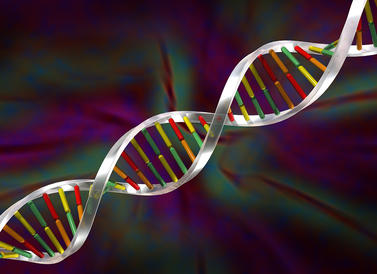To achieve this aim, we have the following sub-goals:
- Through our research, we focus on helping achieve the UN's Sustainable Development Goals.
- Provide Bioinformatics and Machine learning/AI support to all on-going projects and future grant applications.
- Realize projects, both research-driven and innovation based to enable value creation from biomaterials.
- Maintain and develop key scientific instrumentation platforms, both analytical and processing types, to allow versatile research into biodiscovery and bioinformatics.
- To strengthen joint grant proposals and foster collaboration and interaction with national and international researchers and industry partners.
- Focus on diagnostics of bacterial infection and Antimicrobial Resistance (AMR) from a One-Health perspective.
Bioinformatics and Machine Learning
Most biological research involves the application of some mathematical, statistical, or computational tools to help analyze biological data and integrate various types of information in answering a particular biological question. Whether the application is simple or complex, it is clear that mathematical and computational tools have become an integral part of modern-day biological research. The merger of these disciplines created an information-oriented field in biology, now known as bioinformatics.
- Bioinformatics involves using computers to store, retrieve, analyze, and visualize information related to biological macromolecules such as DNA, RNA, and proteins.
- Machine Learning (ML) is an umbrella concept for computational algorithms aiming to solve (large-scale) problems without precise instructions on how to find solutions. While early concepts date back to the 1960s, it is the dramatic increase in computational power that makes it possible to apply ML to huge data sets, often with no instructions given at all.
With the advent of huge amounts of data in life sciences, more and more ML, in combination with Bioinformatics, is being used for data analysis and to help solve complex biological questions.
Biodiscovery
Bioeconomy is the production and conversion of renewable biological resources and the rest of raw materials to value-added products. Products can be food, feed, fiber, bioactive substances, and bioenergy. Biodiscovery is a stepping-stone towards fulfilling the goals of bioeconomy in the 21st century. An important principle in the bioeconomy is to utilize the total value of biomass and the rest of the raw materials. Bioprocess technology (BPT) is the methods and tools we use to take out and isolate these products – both in the lab and at a larger scale. Using physical, chemical, and enzymatic methods in BPT it is possible to separate even very small molecules and prepare them in a purified and active form.
Our research supports the new bioeconomy as we develop solutions for utilizing all values in biomass. With less going to waste, we add value to the rest of the raw materials and bring crucial nutrients back into the loop.
Biorefinery
Biorefining of residual biomass is a rational way to produce fuels, chemicals, and materials that today are produced from fossil resources. In biorefineries, biomass constituents are separated and directed to the production of marketable products. Pretreatment is crucial for the selective separation of the main biomass constituents.
The biorefinery research at the B3 group focuses on crop residues generated in Innlandet. We aim to set effective pretreatment methods tailored for specific materials. Investigating different approaches for using cellulosic, hemicellulosic, and lignin streams resulting from pretreatment is an important area of our research. We also aim to extract bioactive compounds suitable for added-value applications.



